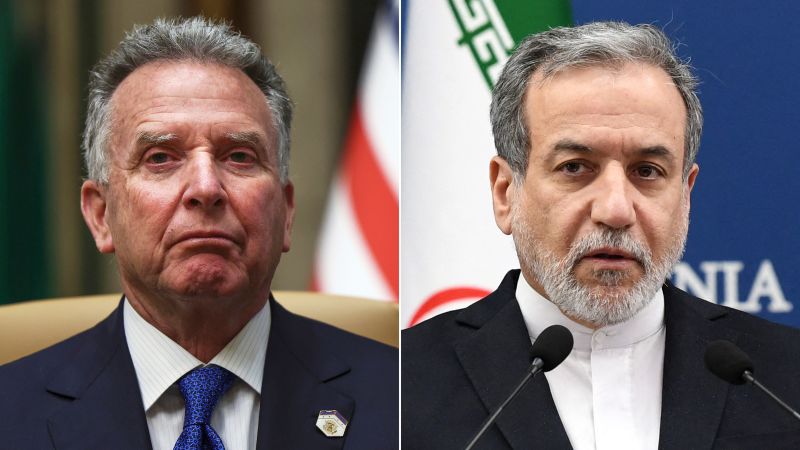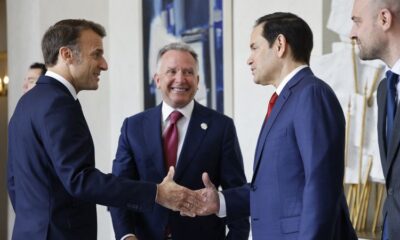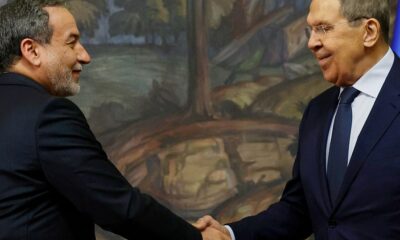CNN
—
Republican Rep. Michael McCaul of Texas called out members of his party behind closed doors this week for parroting Russian disinformation and Russian President Vladimir Putin’s talking points, a source in the room told CNN.
McCaul, a former House Foreign Affairs chairman and staunch Ukraine supporter, acknowledged during the private event with NATO ambassadors and defense ministers Tuesday that his strong stance the US should play an active role in deterring Russian aggression makes him a dying breed in the Republican Party, the source added.
McCaul’s office declined to comment on the private remarks. McCaul has previously warned about Russian propaganda infecting “a good chunk” of his party’s base.
The shift in the party away from former GOP President Ronald Reagan’s “peace through strength” has created a tightrope of sorts for many Republicans looking to balance their support for Ukraine with the more isolationist view embraced by President Donald Trump.
While Republicans in Congress have been split on continuing aid to Ukraine amid its three-year war with Russia, a number in the party continue to publicly advocate for the war-torn country.
This week, GOP Rep. Don Bacon echoed concerns that loud voices in his party embracing an isolationist approach are hurting US foreign relations and potentially undercutting the party’s success in the process.
“This is a winning issue. Yet Republicans are divided on it,” Bacon said in a conversation with CNN following the event with veterans, where he appeared alongside Ukraine Parliament’s Chair of the Defense Committee, MP Oleksandr Lytvynenko.
“I’d like Trump to have more moral clarity that there is a good guy and a bad guy here and we want to be on the good side.”
The relationship between Washington and Kyiv has been volatile since Trump took office, from the president pausing and unpausing US military and intelligence support to Ukraine to a contentious Oval Office meeting with Ukrainian President Volodymyr Zelensky in late February. Meanwhile, the US hasn’t imposed any penalties on Russia, even as Moscow has refused to agree to a White House proposal for a 30-day ceasefire and continues to place conditions on even a partial ceasefire in the Black Sea.
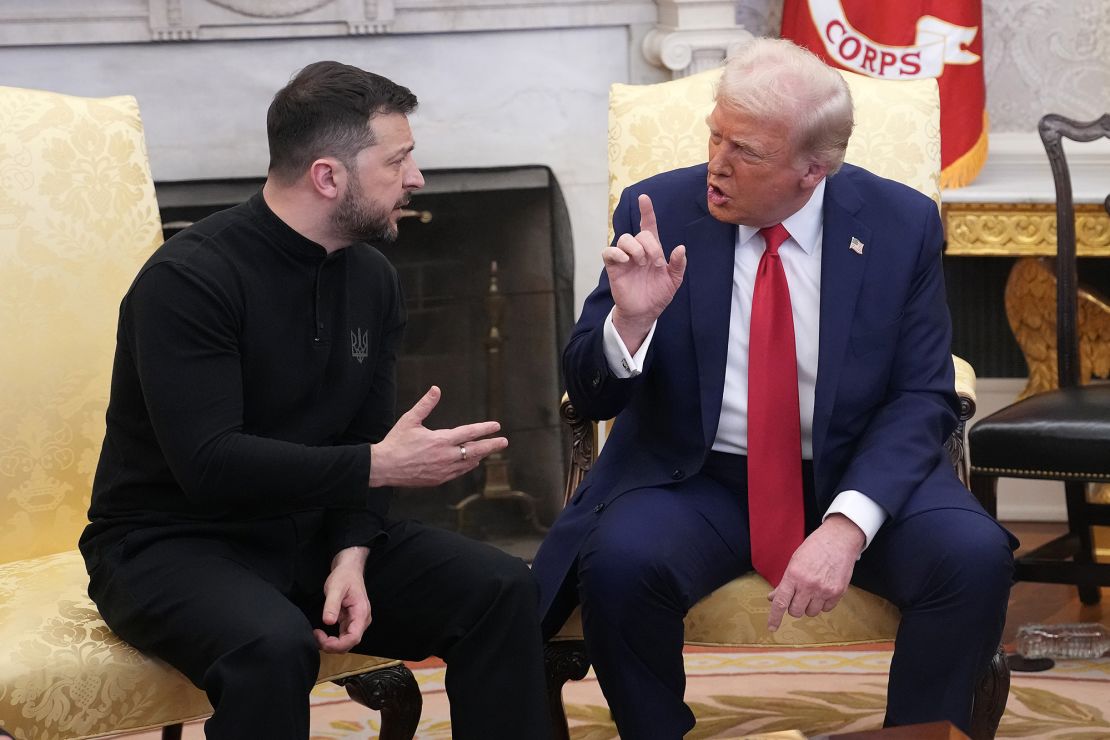
There have been few instances of Republicans splitting with Trump so far this Congress, making the public stances by the self-proclaimed Reaganites all the more notable.
Two days after the Trump’s Oval Office confrontation with Zelensky, GOP Rep. Brian Fitzpatrick took matters into his own hands to speak with Zelensky’s chief of staff and get “this train back on the tracks.”
Former Senate Republican leader Mitch McConnell sharply criticized the Trump administration’s Ukraine policy and pivot toward isolationism last month, accusing Trump’s advisers of showing “their embarrassing naivete” in dealings with Russian President Vladimir Putin. GOP Sen. Roger Wicker gave an impassioned floor speech last month speaking out against reports that the Trump administration was preparing to lift a number of sanctions against Russia. And Bacon published a New York Times op-ed this week entitled “My Fellow Republicans and President Trump, We Must Stand Up to Putin.”
“I don’t know if the group is smaller or not, it’s just that the other train of thought is just being more vocal,” said GOP Rep. Dan Newhouse. “I think a lot of people still feel that we stand with our friends. America needs its allies, and they need us and it’s been a symbiotic, very positive relationship.”
A number of Republicans who have pushed back on the administration – from condemning Trump’s claim that Zelensky is a “dictator” to expressing disapproval with the administration’s approach to negotiating a cease-fire deal between the countries – say they have had to be strategic about when to make public statements.
“There’s chairman of committees that say, ‘Don, you’re the spokesman on this, you need to keep it up.’ Including ones that are not vocal themselves,” Bacon said.
But even as public pressure ebbs and flows, the GOP lawmakers tell CNN they’re committed to regularly making their case behind the scenes to whoever will listen.
Acknowledging that at times public-private disconnect, Republican Rep. Dusty Johnson of South Dakota said “the reality is people always have a tendency when their team is in the White House to praise in public and criticize in private. That’s what we’re to do as good teammates.”
GOP Rep. Joe Wilson of South Carolina always keeps pins adjoining the Ukrainian and American flags on hand. His cufflinks, a gift from the deputy mayor of Kyiv, tell the success of Ukrainian forces sinking the “mothership” of the Russian Black Sea Fleet, with his left showing a Ukrainian solder on the beach of the flagship and his right showing the sinking of the Russian missile cruiser.
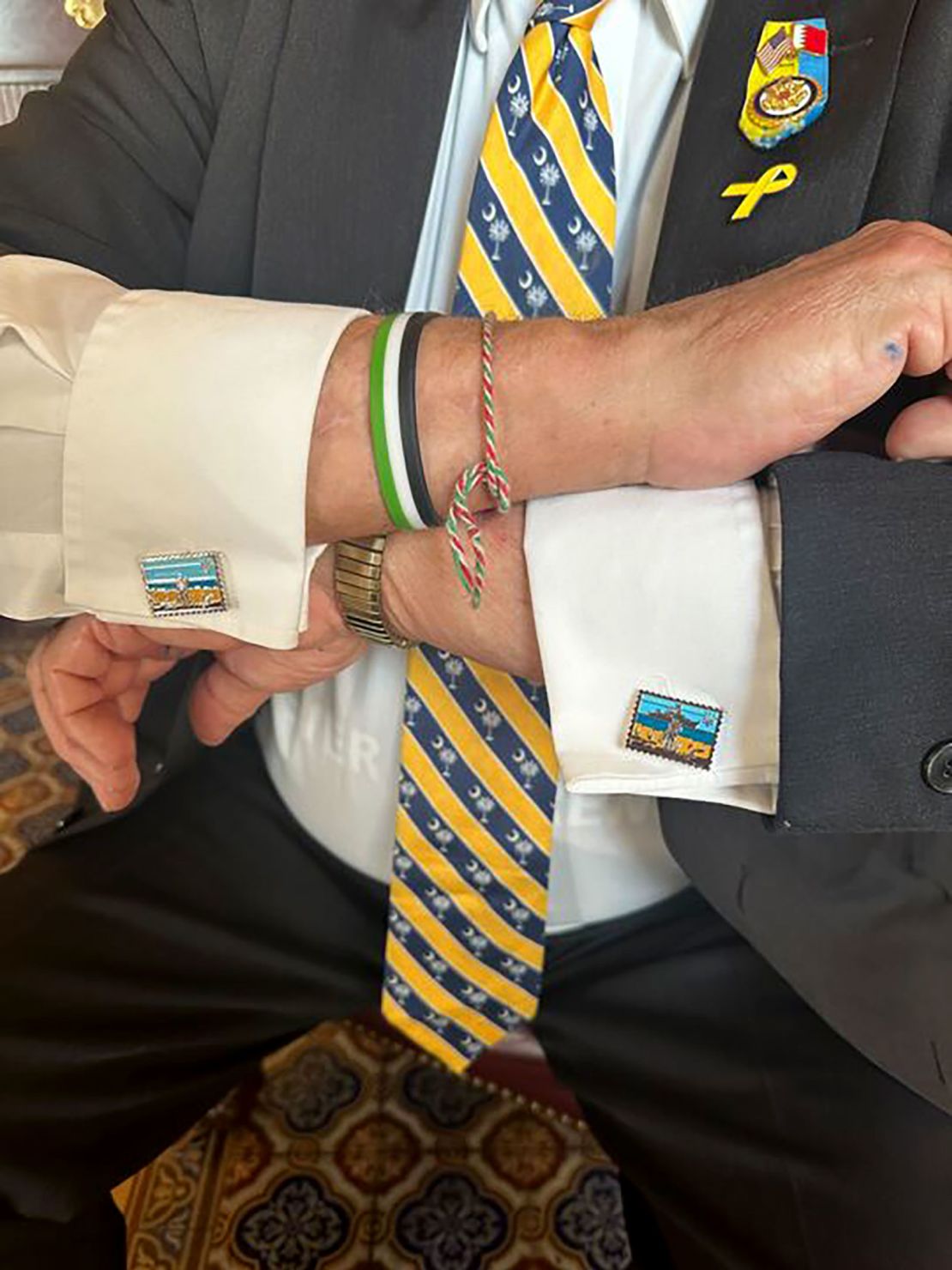
“I am a student of history, and I feel like we’re somewhat reliving 1939 when on September 1 Hitler invaded Poland,” Wilson, the co-chair of the Bipartisan Helsinki Commission, said comparing the start of World War II to Putin’s invasion of Ukraine.
While he said he’s “not averse” to anything Trump is doing, he wished the now-infamous Oval Office meeting had been a “private conversation.”
He clings to a moment he had with House Speaker Mike Johnson last year at the RNC convention in Milwaukee, telling CNN the speaker validated to a room full of ambassadors from the European Union that he was a “Reaganite.”
“I burst into applause,” Wilson recalled.
But Johnson, who risked his job last year to pass critical funding for foreign aid, has dramatically retreated on the issue and recently deferred to Trump.
At the Conservative Political Action Conference in February Johnson shook his head when asked if he saw another funding bill for the war in Ukraine.
“There’s no appetite for that,” the speaker said. “What do you think?”
The far-right crowd erupted in boos.


